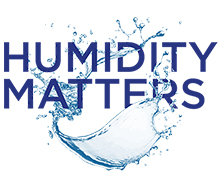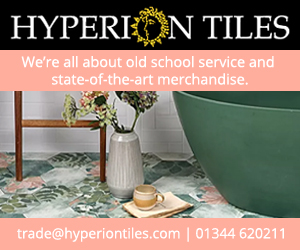Telephone
Click to view
Mobile
Click to view
Website
Contact
Enquiries
Email
Address
PO Box 1883
Southampton
County Southampton
South East
SO18 9PH
England UK
Opening Hours
open Monday- Friday 0800-1800 out of Hours also available under contract
About Humidity Matters
Why Humidify?
Humidification Improves Indoor Air Quality
Bacteria and viruses thrive in dry air. This is why that scratchy sore throat you wake with when staying in a too-dry room lasts for days. Studies have shown that when room relative humidity (RH) drops below 40 percent, absenteeism increases due to respiratory illness. Proper humidification can reduce absenteeism as much as 18 percent. Humidified spaces feel warmer and are more comfortable for occupants, especially in cold climates where heating systems run frequently.
Of course, controlling RH is important. Keeping RH levels within a range of 40 to 60 percent not only decreases bacteria and viruses in the air, but hinders the development of fungi, mites, chemical interactions, and ozone production. The result is reduced occurrences of allergic rhinitis, respiratory infections, and asthma among building occupants. To ensure that RH levels do not rise above 60 percent, responsive humidification system control is essential.
Humidification Improves Manufacturing Processes
Relative humidity levels affect manufacturing production rates, and product size, weight, strength, appearance, and quality. If you’ve ever known your laser printer to jam on a humid summer day, then you can understand how changes in texture, strength, or weight can affect the high-speed processing of hygroscopic materials.
Static electricity can negatively affect processes. Static electricity can cause high concentrations of oxygen and other gases to ignite. These gases are prevalent in hospitals and laboratories. Dust particles adhere to objects when charged by static electricity. This can be a critical problem with semiconductor, pharmaceutical, and other electronic processing, where one misplaced dust particle can ruin a chip, a batch, or an assembled component. Maintaining RH levels within a range of 30 to 60 percent will significantly reduce problems associated with static electricity.
Humidification Preserves Materials And Furnishings
Many building materials, finishes, and furnishings are hygroscopic — they absorb, retain, and release moisture. Low RH levels cause expensive damage to building interiors because as hygroscopic materials dry, they shrink. This can create gaps in wallpaper seams, floor boards, and furniture joints, and also can damage historic and artistic artifacts. Fluctuating RH levels also cause damage. Maintain a consistent RH level to keep the moisture content of hygroscopic materials in equilibrium (EMC) with their surrounding environments.
Humidification Improves Comfort For Building Occupants
Also hygroscopic in nature, the human body gives up its moisture to dry air. As our body’s moisture migrates (evaporates) to areas of low RH, we become cooled, just as when we perspire. Raising the RH level in a room slows the evaporation rate and will make the room feel warmer. This allows dropping the dry-bulb temperature without a loss in comfort, offsetting humidification energy costs. Adding humidity to a building preserves materials, improves processes, and enhances health and comfort, while paying for itself with increased productivity and lower heating costs.
Selecting a System
New to the world of commercial humidification and evaporative cooling systems? Looking for an easy way to better understand the products and options available for your project?
Our product selection guide can help you sort through the choices and point you in the right direction.
Types of Humidifier available:
Isothermal: Electrode, Resistive heater, pressurised steam, steam distribution manifolds for low absorption.
Steam Generators for Spa/Wellness applications
Adiabatic: Low/high pressure atomisers for Duct and direct room applications.
Evaporative: wetted media systems for humidification and cooling process. ideal for Data centre applications
sales, commissioning, installation and maintenance packages available
visit us at www.humiditymatters.co.uk
- Improve indoor air quality
- Improve manufacturing processes
- Preserve materials and furnishings
- Improve comfort for building occupants
Humidification Improves Indoor Air Quality
Bacteria and viruses thrive in dry air. This is why that scratchy sore throat you wake with when staying in a too-dry room lasts for days. Studies have shown that when room relative humidity (RH) drops below 40 percent, absenteeism increases due to respiratory illness. Proper humidification can reduce absenteeism as much as 18 percent. Humidified spaces feel warmer and are more comfortable for occupants, especially in cold climates where heating systems run frequently.
Of course, controlling RH is important. Keeping RH levels within a range of 40 to 60 percent not only decreases bacteria and viruses in the air, but hinders the development of fungi, mites, chemical interactions, and ozone production. The result is reduced occurrences of allergic rhinitis, respiratory infections, and asthma among building occupants. To ensure that RH levels do not rise above 60 percent, responsive humidification system control is essential.
Humidification Improves Manufacturing Processes
Relative humidity levels affect manufacturing production rates, and product size, weight, strength, appearance, and quality. If you’ve ever known your laser printer to jam on a humid summer day, then you can understand how changes in texture, strength, or weight can affect the high-speed processing of hygroscopic materials.
Static electricity can negatively affect processes. Static electricity can cause high concentrations of oxygen and other gases to ignite. These gases are prevalent in hospitals and laboratories. Dust particles adhere to objects when charged by static electricity. This can be a critical problem with semiconductor, pharmaceutical, and other electronic processing, where one misplaced dust particle can ruin a chip, a batch, or an assembled component. Maintaining RH levels within a range of 30 to 60 percent will significantly reduce problems associated with static electricity.
Humidification Preserves Materials And Furnishings
Many building materials, finishes, and furnishings are hygroscopic — they absorb, retain, and release moisture. Low RH levels cause expensive damage to building interiors because as hygroscopic materials dry, they shrink. This can create gaps in wallpaper seams, floor boards, and furniture joints, and also can damage historic and artistic artifacts. Fluctuating RH levels also cause damage. Maintain a consistent RH level to keep the moisture content of hygroscopic materials in equilibrium (EMC) with their surrounding environments.
Humidification Improves Comfort For Building Occupants
Also hygroscopic in nature, the human body gives up its moisture to dry air. As our body’s moisture migrates (evaporates) to areas of low RH, we become cooled, just as when we perspire. Raising the RH level in a room slows the evaporation rate and will make the room feel warmer. This allows dropping the dry-bulb temperature without a loss in comfort, offsetting humidification energy costs. Adding humidity to a building preserves materials, improves processes, and enhances health and comfort, while paying for itself with increased productivity and lower heating costs.
Selecting a System
New to the world of commercial humidification and evaporative cooling systems? Looking for an easy way to better understand the products and options available for your project?
Our product selection guide can help you sort through the choices and point you in the right direction.
Types of Humidifier available:
Isothermal: Electrode, Resistive heater, pressurised steam, steam distribution manifolds for low absorption.
Steam Generators for Spa/Wellness applications
Adiabatic: Low/high pressure atomisers for Duct and direct room applications.
Evaporative: wetted media systems for humidification and cooling process. ideal for Data centre applications
sales, commissioning, installation and maintenance packages available
visit us at www.humiditymatters.co.uk
Team
| Name | Role | Telephone | |
|---|---|---|---|
| Andie P Chessun | Director | andie.chessun@dristeemuk.co.uk | 07921673986 |
| Jens Van Geel | Technical and sales support | jens.vangeel@dristeemuk.co.uk | 02380443127 |
| Christel Naenen | Administration | christel.naenen@dristeemuk.co.uk | 02380443127 |
 London
London UK
UK Ireland
Ireland Scotland
Scotland













